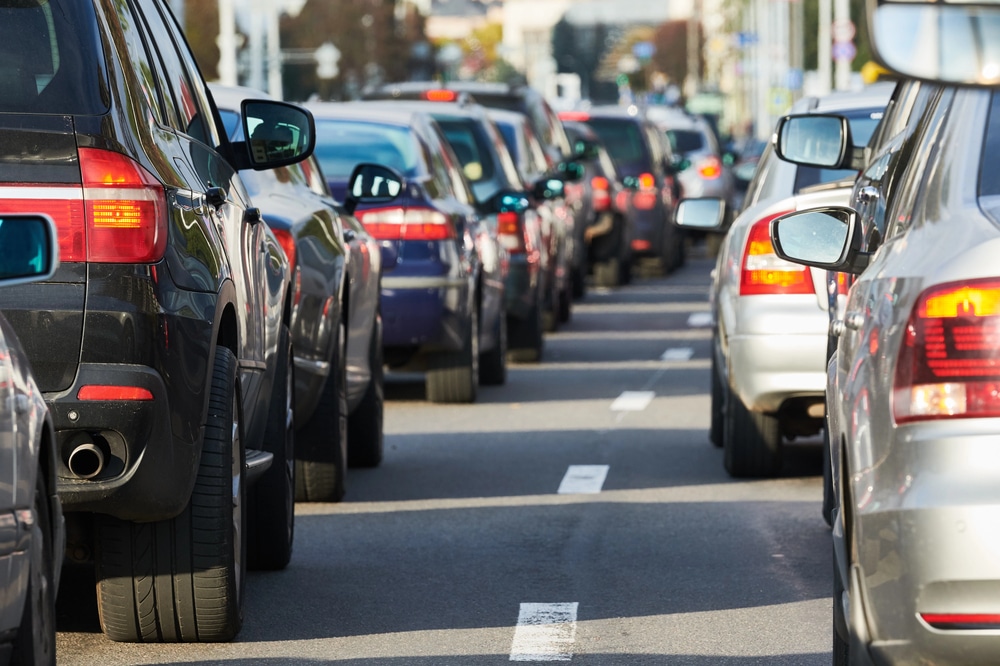Approximately eighty million Americans were expected to hop in their motor vehicles and hit our nation’s roads for Thanksgiving last week. Despite the immediate “lived experience” of abysmal transportation infrastructure, most people will not level criticism at the state as such. You can thank the government-supremacist, anti-capitalist, state-run compulsory schooling system. Murray Rothbard said:
“…since the State began to control education, its evident tendency has been more and more to act in such a manner as to promote repression and hindrance of education, rather than the true development of the individual. Its tendency has been for compulsion, for enforced equality at the lowest level, for the watering down of the subject and even the abandonment of all formal teaching, for the inculcation of obedience to the State and to the ‘group,’ rather than the development of self-independence, for the deprecation of intellectual subjects.” [Emphasis Added]
Yet while the people won’t voice righteous anger at the state’s control of our highways and byways, the schooling system has left them unable to rhetorically defend the state beyond elementary slogans. They say things such as “I like roads,” and “We need roads,” and “You want to live in a world without roads?”
The irony, of course, is most citizens don’t even like the roads we have. They simply cannot imagine a world in which roads exist without the state’s monopolistic powers. In truth, people can build (and have actually built) roads through the free market. Mises Institute Research Fellow Chris Calton observed:
“…in the early years of the new republic, Americans underwent what some historians have described as a ‘turnpike craze.’ The term ‘turnpike’ specifically refers to roadways constructed and operated privately. Early Americans, wanting to connect their communities to the developing market economy, eagerly subscribed to turnpike corporations for local roads. In fact, turnpike corporations were among the first for-profit corporations in the country, and dramatically widened the population of shareholders at a time when corporate stock was rarely available to the public.”
Most Americans don’t realize this. So, they are left to complain about their roads. A lot. And the complaints are not just about deteriorating roads, heavy traffic, and the occasional collapsing bridge. No, many Americans are convinced the roads are inherently destroying society.
Massachusetts residents are well aware of their state’s reputation for possessing some of the worst drivers in the nation. They might conveniently place the blame on egregious “traffic and infrastructure,” but they have a point.
Things are so bad in Worcester, Massachusetts that this past summer city officials declared a “road safety and traffic violence crisis.” The city manager vowed to “continue the enforcement,” “educate folks about slowing down,” and look at “potentially a policy change of reducing the speed limit.”
It is said that “time is money,” and New York City’s traffic congestion is so bad, last year the gridlock cost drivers more than $9 billion in lost time. The city has the worst traffic in America and is even worse than Mexico City.
Ever since the iconic collapse of the Francis Scott Key Bridge in Baltimore, Maryland last March, drivers have endured “nightmarish commutes” that could be the new normal for years.
The Washington, DC Metro Area is a glorious exception. Being centered on our nation’s capital, it is a place where rational public policy and planned, sustainable infrastructure is the envy of the world. Just kidding. It’s a complete mess.
Orlando, Florida has infrastructure areas that seem designed to produce car accidents. Thanks to “sharp curves, confusing intersections, short merge lanes, and poor or non-existent intersection control,” motorists have been piling up their cars and work for personal injury attorneys.
In Chicago, Illinois there are two seasons: winter and construction. And due to a supply and demand imbalance (low supply of road lanes combined with high demand to drive on them) created by the states’s monopoly, commuters spend the longest amount of time in traffic and the most amount of money on driving in America.
Texas has notoriously bad traffic, especially around its major cities. Surprisingly, Austin is relatively smooth sailing compared to places like Dallas and Houston, despite the infamous I-35 that runs right through the city. Well, the Texas Department of Transportation is fixin to change that. It is currently engaged in an “expansion project” conservatively projected to cost $4.5 billion. When the state is down, Austin might be so bad to drive in, its residents will start moving back to California.
The Golden State, of course is like driving through the fifth or sixth circle of Dante’s Hell. California traffic is so bad, even Hollywood propaganda doesn’t try to hide it. The people who tell us our military is invincible and a woman caught Osama bin Laden actually put the truth about California gridlock in their movies.
These are some of the places Americans traveled to and from this Thanksgiving. Mass waves of motorists trying to stay alive (and stay awake) as they ground through interminable and hellish journeys. But don’t blame the inherent nature of the state for this state of affairs. We all like roads, after all.

































